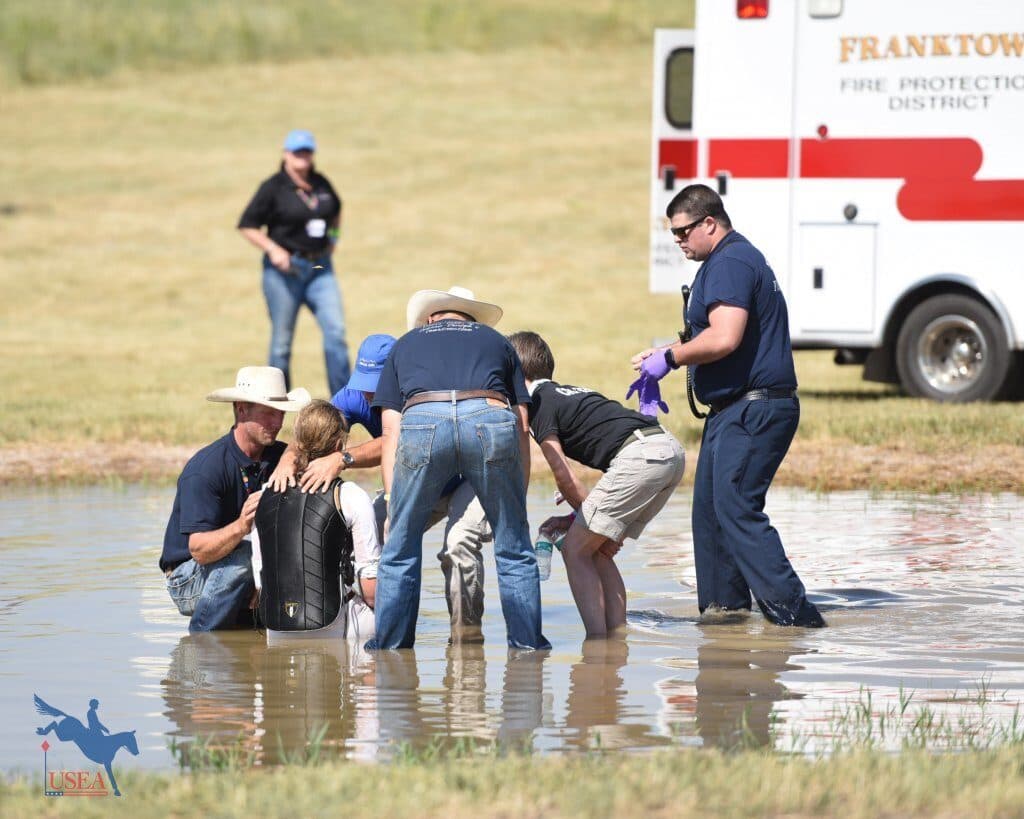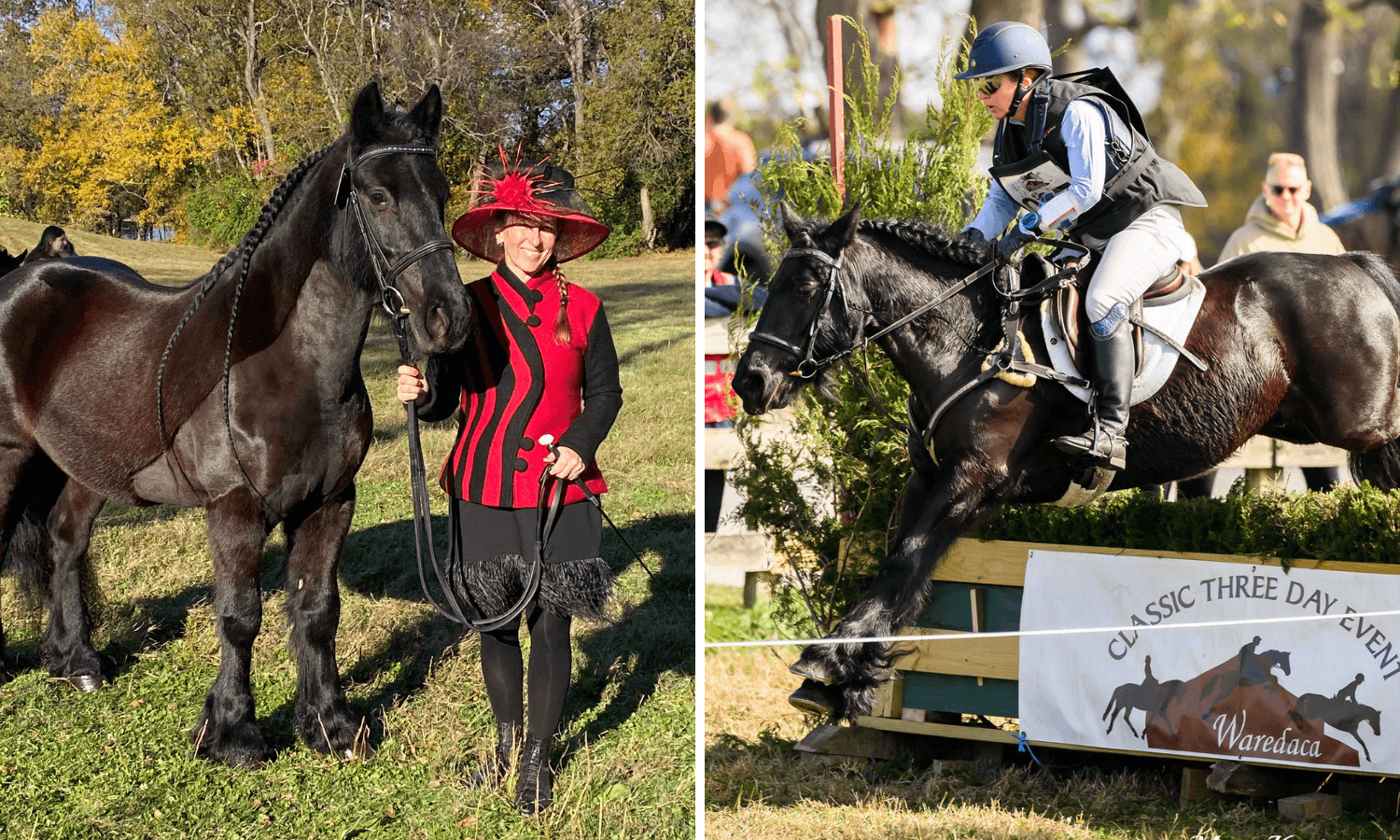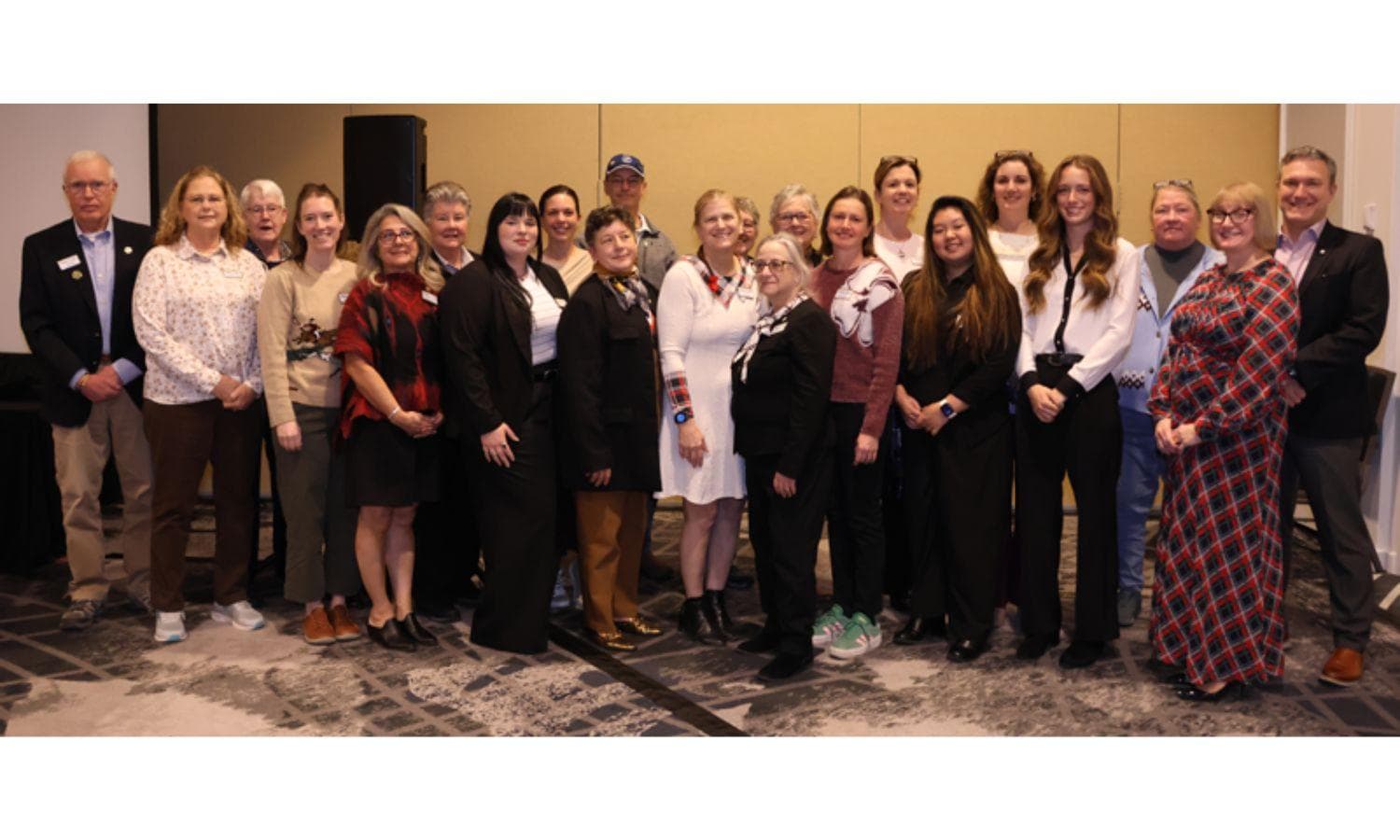Rule Refresher: Accidents and Injuries

Do you know the rules governing your return to competition if you are injured in a fall? If not, you'll want to be sure you're aware of the rules if you happen to fall off while competing. Today, we’re breaking down EV 113: Medical Requirements. Text has been taken directly from the USEF Rules For Eventing, with emphasis added by the USEA.
Last week, the USEA announced that there is a new online test and certification for eventing safety coordinators, and that the USEA Safety Committee is restructuring to include subcommittees for rider safety, horse safety and welfare, and cross-country safety. For more information, read the full article.
EV 113 Medical Requirements
1. ACCIDENTS INVOLVING COMPETITORS
a. In the event of an accident in which a competitor is apparently injured or concussed, they must be examined by designated medical personnel to determine if they may take part in another test, ride another horse or if they are capable of leaving the grounds. Refusal to be examined shall be penalized by a fine of $100 (Payable to the Organizing Committee) at the discretion of the Ground Jury.
b. The Ground Jury may direct that competitors who have a fall, not associated with penalties, be examined as in paragraph a (above). If the fall occurs on cross-country, the competitor’s time will be taken in accordance with EV138.7(e).
c. Competitors who fail or refuse to follow the advice of the medical personnel regarding treatment following such a fall may be subject to disqualification at the discretion of the Ground Jury.
2. In conjunction with GR1316, the following apply in the case of a fall/accident or other injury likely to cause concussion (as determined by qualified medical personnel):
a. No loss of consciousness and no sign of concussion - No mandatory suspension;
b. No loss of consciousness but with brief symptoms of concussion e.g. confusion, loss of memory, altered mental state (all symptoms of concussion must have resolved within 15 minutes both at rest and exercise) - minimum of 7 days mandatory suspension. The day of injury counts as the first day of suspension period.
c. Any loss of consciousness, however brief, or symptoms of concussion persisting after 15 minutes - minimum 21 days mandatory suspension. The day of injury counts as the first day of the suspension period.
d. Notwithstanding the above, riders who have established a baseline neurocognitive skills level through a Federation approved testing program, e.g. IMPACT test, may return to competition upon submission to the Federation of certification that they have passed an exam establishing that they have suffered no impairment of that level. In addition, they must submit clearance as required under GR1316.6.
e. All other riders may, at the expiration of the mandatory suspension period, return to competition by complying with the requirements of GR1316.5.
3. MEDICAL CARDS/MEDICAL BRACELETS. An approved and completed medical card or medical bracelet is required any time while jumping. Medical cards must be enclosed in a transparent, waterproof carrier. Medical cards must be securely attached to the competitor’s upper arm on the outside of the competitor’s clothing. Medical bracelets must be visible on the competitor’s wrist. Medical cards must include any relevant medical history, injury (particularly to the head), drug allergies and current medication. If wearing a medical bracelet, any relevant medical history, injury (particularly to the head) drug allergies and current medication must be included in the online medical form of the bracelet’s vendor website or integrally in the bracelet. Athletes are responsible to record all injuries on the card or in the case of a medical bracelet, update their medical information online. Failure to wear one’s own medical card or bracelet shall be penalized by a fine of $100. (Payable to the Organizing Committee)
4. SAFETY COORDINATOR. All competitions shall furnish a Safety Coordinator, who shall be responsible for the establishment and coordination of medical services. As this shall include the transportation of injured competitors, the Safety Coordinator should not have any other duties during any cross-country or jumping tests.
5. MEDICAL PERSONNEL. Qualified medical personnel, with suitable medical equipment and with no other duties, must be present during scheduled schooling sessions over fences and during all scheduled competitions. Qualified Medical personnel is defined as a person who is currently certified or licensed in the profession and trained in pre-hospital trauma care. The minimum requirement is an EMT/Paramedic who is pre-hospital trauma trained.
6. ACCESS. The designated medical personnel should have the capability of rapid deployment to any part of the arenas or courses in adverse conditions. Should this access not be available, the Ground Jury, on the advice of the Technical Delegate and the Course Designer, must consider alternatives including removal of the inaccessible portion.















